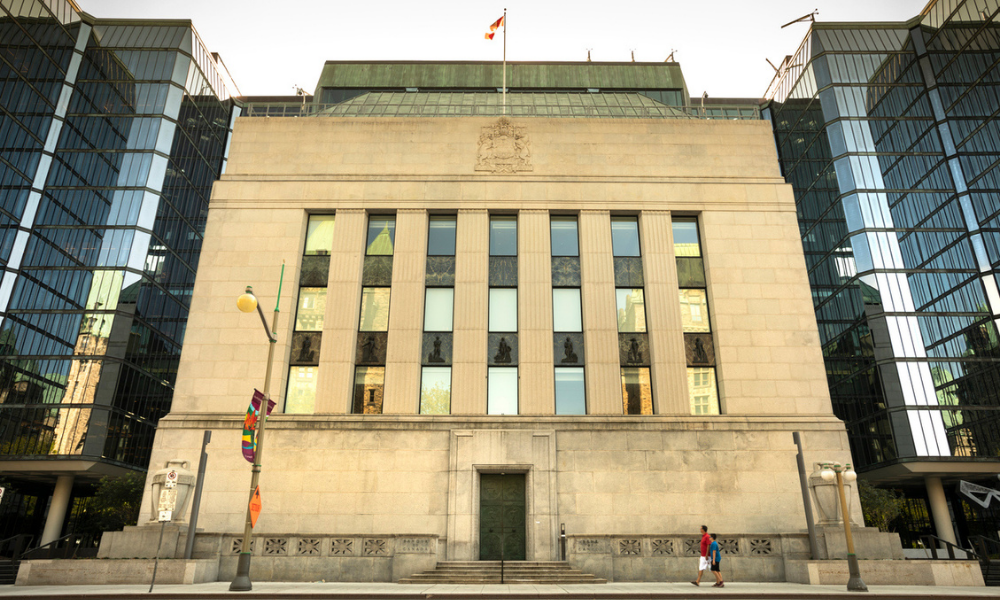After pandemic debt binge, economy is anticipated to be particularly vulnerable to increasing interest rates

The Bank of Canada will raise its overnight rate by 50 basis points on June 1, and interest rates will be at least a half-point higher by year's end than forecast only one month ago, according to a group of economists.
All 30 economists in a new poll by Reuters agreed that the central bank will be taking that hawkish turn in its next policy meeting this week.
The BoC appears to be on track to adopt the Federal Reserve's forceful approach to taming skyrocketing inflation, which reached a three-decade high of 6.8% in April and has now remained above the central bank's 1-3% range for more than a year.
After Canada’s central bank announced a 50-basis-point policy hike last month – the largest in 22 years – Governor Tiff Macklem indicated interest rates may need to rise above the neutral range of 2% to 3% for a period of time to get inflation back in check.
In the May 20-25 poll by Reuters, all respondents predicted that the BoC will ramp up its overnight rate by half a percentage point on June 1, bringing the lending rate to 1.50%. This was consistent with what’s priced into the money markets.
It was a stark turn in sentiment compared to last month, when economists predicted a 25-basis-point boost in June.
"The BoC is laser-focused on taming inflation but once the overnight rate reaches a more neutral level, it will be more conscious of the potential trade-off between returning inflation expediently to target and prolonging the economic cycle," Josh Nye, senior economist at Royal Bank of Canada, told Reuters.
“We don't expect the BoC will make monetary policy restrictive but if stubbornly high inflation forces it to do so that would amplify recession risk."
A smaller group of economists were asked a follow-up question on whether the current tightening campaign would cause a recession. They were virtually evenly divided, with seven of 14 saying it would not and the remaining believing it would.
After Canadians borrowed excessively during the epidemic to participate in a hot housing market, Canada's economy is expected to be particularly susceptible to increased rates.
Thirteen of the 30 people polled projected rates would rise to 2.25% in the third quarter; another 10 said it would reach 2.00%, and six agreed it would hit 2.50%. Only one expert predicted that interest rates would reach 1.75% by the end of September.
Following that, 25 of 30 respondents predicted that rates will climb to 2.50% or higher in the fourth quarter, with six expecting rates to reach 2.75% and another six expecting rates to reach 3.00% by the end of 2022.
Only four people pegged rates at 2.25%, while one predicted rates to be 1.75%.
The medians of the poll results indicate rates will be 2.25% next quarter and 2.50% in the fourth. The Bank of Canada was predicted to raise rates to 2.75% in the first quarter of 2023 before remaining on hold until the end of the year.
While inflation is predicted to moderate next year, it is expected to remain above the central bank's target until at least 2024.
"Right now, the BoC's attention remains firmly focused on inflation," noted Christian Lawrence, senior cross-asset strategist at Rabobank. “That said, the dangers of hiking into a recession are not lost on the bank, but dampening demand is the only tool they have to try to slow inflation, and that spending needs to be moderated to try to reach an equilibrium.”



